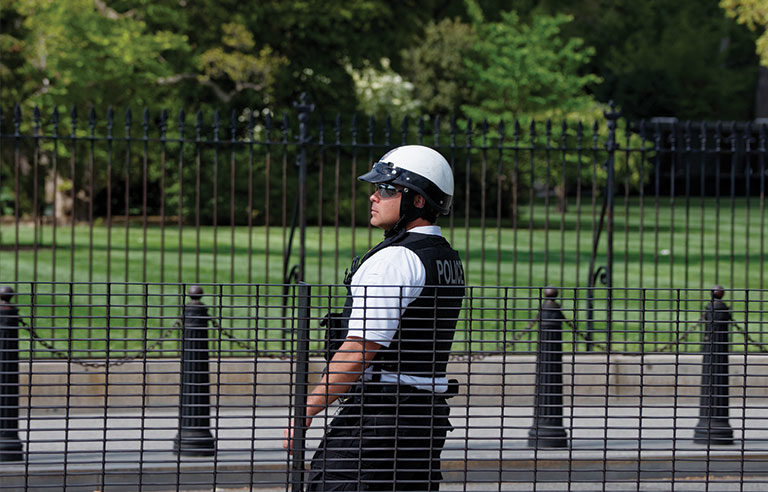Study of torso injuries among law enforcement shows benefits of body armor

Photo: Roman Babakin/iStockphoto
Chicago – Law enforcement officers who wear body armor are 76 percent more likely to survive a bullet to the torso than officers who don’t wear the gear, according to a study from the National Opinion Research Center at the University of Chicago.
Researchers examined information from the Law Enforcement Officers Killed and Assaulted database on 1,789 law enforcement officers who were injured or killed by guns, knives or other weapons between 2002 and 2011. Nearly 74 percent of the officers were shot, with just over 48 percent being struck in the torso.
Although many law enforcement agencies require officers to wear body armor, 12 percent of officers do not do so, the researchers note. Officers who were older, overweight or worked in an area with a higher amount of gun attacks on officers were least likely to wear body armor and least likely to survive being shot.
Other findings from the study:
- More than half of the officers shot in the torso lived in the southern United States.
- Officers on assignments other than patrol were less likely to wear body armor.
- Managers and commanders were significantly less likely to wear body armor.
The analysis “reinforces the clear life-saving benefits of body armor, adds important additional data on who are most likely to wear body armor, and helps explain how officer and incident-level data can provide some insights into why some officers do not survive a torso gunshot,” researchers wrote.
The researchers recommended that agencies focus on older, overweight officers, as well as those on detective and undercover assignments, when enforcing policies for body armor. Agencies also can use the findings to create programs and campaigns to promote awareness and use of armor.
The study was published online Aug. 12 in the Journal of Occupational and Environmental Hygiene.
Post a comment to this article
Safety+Health welcomes comments that promote respectful dialogue. Please stay on topic. Comments that contain personal attacks, profanity or abusive language – or those aggressively promoting products or services – will be removed. We reserve the right to determine which comments violate our comment policy. (Anonymous comments are welcome; merely skip the “name” field in the comment box. An email address is required but will not be included with your comment.)

